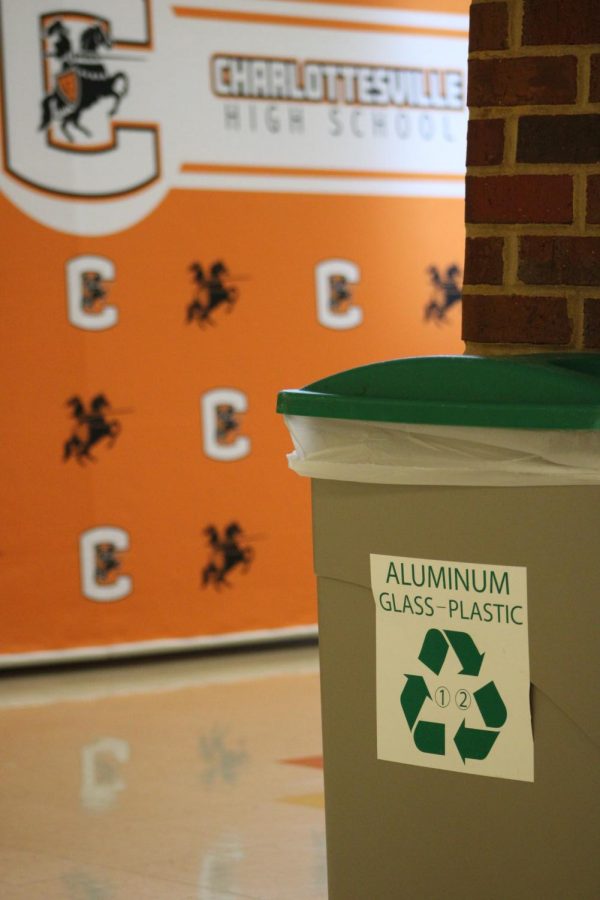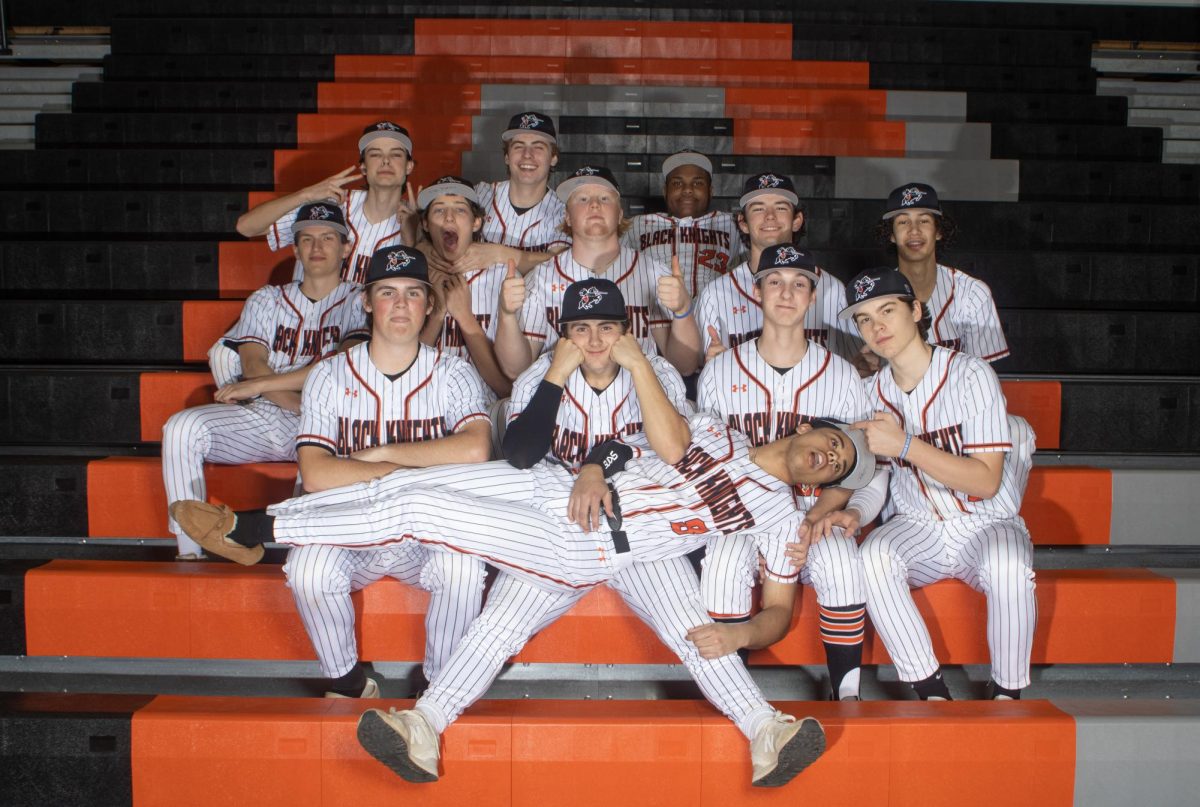Recycling and Composting? Not at CHS!
A fake recycling bin to give the illusion of recycling.
September 25, 2019
Charlottesville High School does not participate in any shape or form of recycling. Even though 86.1% of students are very likely to recycle when given the option, the little blue bins scattered randomly throughout classrooms do nothing other than create the illusion of recycling – but the waste goes to exactly the same place.
Eric Irizarry, the principal at Charlottesville High School, acknowledges this problem at C.H.S. and credits it to the vendors the school uses. Where the waste goes “depends on the contractors and who we get our materials from,” because they are also responsible for the waste, Dr. Irizarry explained. However, he is open to seeing more recycling opportunities at C.H.S., and believes that recycling is an important act that should be instituted everywhere.
Not only do students want to see more recycling at C.H.S., but also more composting. Evan Baumgartner, a senior at C.HS., says of composting: “It’s great. Composting is good for the environment, and we should all be doing our part, especially as a school community,” he says. This view seems to be representative of most students, as 95% of students responded to a school-wide survey that they felt that composting and recycling were very important and easy ways to help the planet. The only problem Evan sees with it is that he doesn’t have enough leftover food to compost!
Peter Davis, a C.H.S. teacher who is very involved in the garden, would also like to see more composting at C.H.S., but is unsure of the practicality. When asked about how the gardens could get involved, he explained that, on a small scale, the gardens could use some of the composting. However, it’s a “big task, as 1,200 students will generate a massive amount of waste every day,” Mr. Davis said. He offered an alternative solution to composting at C.H.S.: Blackbear Composting, a company the school used to be involved with, would collect the waste, compost it, and then return a manageable portion to the school to be used in the gardens. Blackbear handles all the inconveniences as they will pick up and transport the waste themselves. Mr. Davis isn’t sure of the reason why the school doesn’t take full advantage of this resource, but says that it “could be financial.”
Overall, Dr. Irizarry, Mr. Davis, and students agree that C.H.S. should be making more efforts towards sustainability, and would love to see composting and recycling grow. Dr. I also points out that the “whole city is moving in that direction,” and Mr. Davis believes that “we could always be doing more.” However, he acknowledges both sides of the coin, saying that “relative to other schools, we are doing well.” Hopefully C.H.S. will continue it’s push towards sustainability, and maybe start by implementing recycling and composting.






